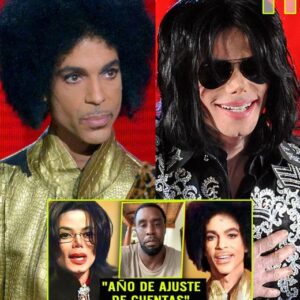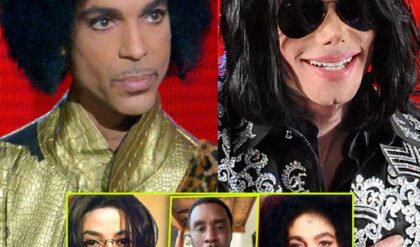In a resolute stand against ongoing criticism, Andrea Swift, mother of global pop sensation Taylor Swift, has issued a pointed and powerful response to those who have labeled her daughter a “distraction” in recent discussions.
The comments come amidst a backdrop of intensified scrutiny and public debate about Taylor Swift’s influence and her role in various high-profile events.
Andrea Swift’s comments, delivered through a social media post, addressed the growing narrative that Taylor’s prominence and personal life, particularly her relationship with NFL star Travis Kelce, are distracting from more significant issues or accomplishments.
The criticism has been fueled by a mixture of public opinion and media commentary, with some detractors arguing that Taylor Swift’s visibility detracts from other important topics.

In her statement, Andrea Swift confronted these criticisms head-on, declaring, “Jealousy is sickness.” This direct remark reflects her frustration with the disparaging remarks directed at her daughter, highlighting a broader issue of how public figures, particularly women, are often judged more harshly than their male counterparts.
Andrea’s choice of words emphasizes a belief that the negativity surrounding her daughter stems from envy rather than legitimate concerns. Taylor Swift, who has long been a figure of fascination and scrutiny, has faced a range of criticisms throughout her career.
From debates about her songwriting and public persona to discussions about her romantic relationships, Swift’s life has been the subject of intense media and public focus. Recently, her relationship with Travis Kelce has attracted considerable attention, with some critics arguing that her personal life is overshadowing her professional achievements.

Andrea Swift’s intervention underscores the personal impact of such public criticism. As a supportive mother, she has often been vocal about her pride in Taylor’s accomplishments and her defense against unwarranted attacks.
Her recent remarks serve not only as a defense of her daughter but also as a broader commentary on the nature of public scrutiny and its effects on personal lives.
The sentiment expressed by Andrea Swift also resonates with broader discussions about the ways in which women in the public eye are often subjected to different standards than their male peers.
Women’s personal lives are frequently scrutinized in ways that can overshadow their professional successes, a dynamic that Andrea’s comments bring to light.
By addressing the criticism directly, Andrea aims to shift the focus back to Taylor’s achievements and contributions rather than allowing detractors to frame her as a distraction. in addition to her personal defense of Taylor, Andrea Swift’s message taps into a larger conversation about how public figures are perceived and criticized.
The use of the term “sickness” to describe jealousy underscores the belief that such negativity is not only harmful but also indicative of deeper issues within societal attitudes towards successful women.
Taylor Swift herself has maintained a relatively measured approach in responding to criticism, focusing on her music and public endeavors. However, the support from her mother highlights the personal impact of public discourse on her family and emphasizes the role of those close to public figures in managing and responding to criticism.

As Taylor Swift continues to be a prominent figure in both music and media, the support from her family remains a crucial aspect of her public life.
Andrea Swift’s remarks serve as a reminder of the personal dimensions behind public scrutiny and the ongoing challenges faced by women in high-profile positions.
The conversation surrounding Taylor Swift’s role and influence is likely to persist, but Andrea’s clear warning adds a significant layer to the discussion about how we perceive and critique public figures.
In summary, Andrea Swift’s response to those calling her daughter a “distraction” highlights the personal and societal issues surrounding public criticism.
Her declaration that “jealousy is sickness underscores the negative motivations behind such remarks and reflects a broader conversation about the treatment of womеп іп the public eye. As Taylor Swift continues to navigate her career and public life, the support from her family remains a vital part of her journey.
News
Michael Jackson and Prince Warned Us About the Fall of Hollywood in 2024: ‘Not All That Glitters is Gold!’
Michael Jackson and Prince Warned Us About the Fall of Hollywood in 2024: ‘Not All That Glitters is Gold!’ In the world of pop music, Michael Jackson and Prince were two of the most iconic and influential figures. While their…
The strange bed that would make MICHAEL JACKSON live to be 150 years old.
The Strange Bed That Could Have Kept Michael Jackson Alive Until 150 Michael Jackson, the King of Pop, was a man surrounded by mystery. His life was full of eccentricities, but one of the most bizarre stories was his obsession…
At 43, Macaulay Culkin Finally Reveals the Shocking Truth About Michael Jackson
Fame often brings an unrelenting spotlight, where the line between public and private lives blurs. For the King of Pop, Michael Jackson, this was a constant reality. While his legendary performances captivated the world, rumors and speculations trailed closely behind….
Breaking: Angelina Jolie Can’t Stand Oprah! Here’s Why (Video)
In a surprising twist, recent reports suggest that tensions have emerged between Hollywood icon Angelina Jolie and media mogul Oprah Winfrey. According to sources, Jolie has grown increasingly frustrated with Oprah over what insiders describe as “philosophical differences” and conflicting…
$H0CKING NEWS: Michael Jackson Is Alive At 65 And Ready To Testify Against Diddy! (VIDEO)
A shocking revelation is rocking the entertainment world: Michael Jackson, the King of Pop, is reportedly alive at 65 and ready to testify against Sean “Diddy” Combs in a case that promises to bring explosive details to light. Since his…
“TRUST ME, DIDDY REALLY DID IT…” Michael Jackson and Diddy’s “Freak Off” Video Leaked, and Paris Jackson is Furious for the Second Time
In a shocking turn of events, a leaked video allegedly involving Michael Jackson and Diddy has surfaced online, stirring controversy and confusion across social media platforms. The purported footage, described as part of a “Freak Off” party, has drawn intense…
End of content
No more pages to load











